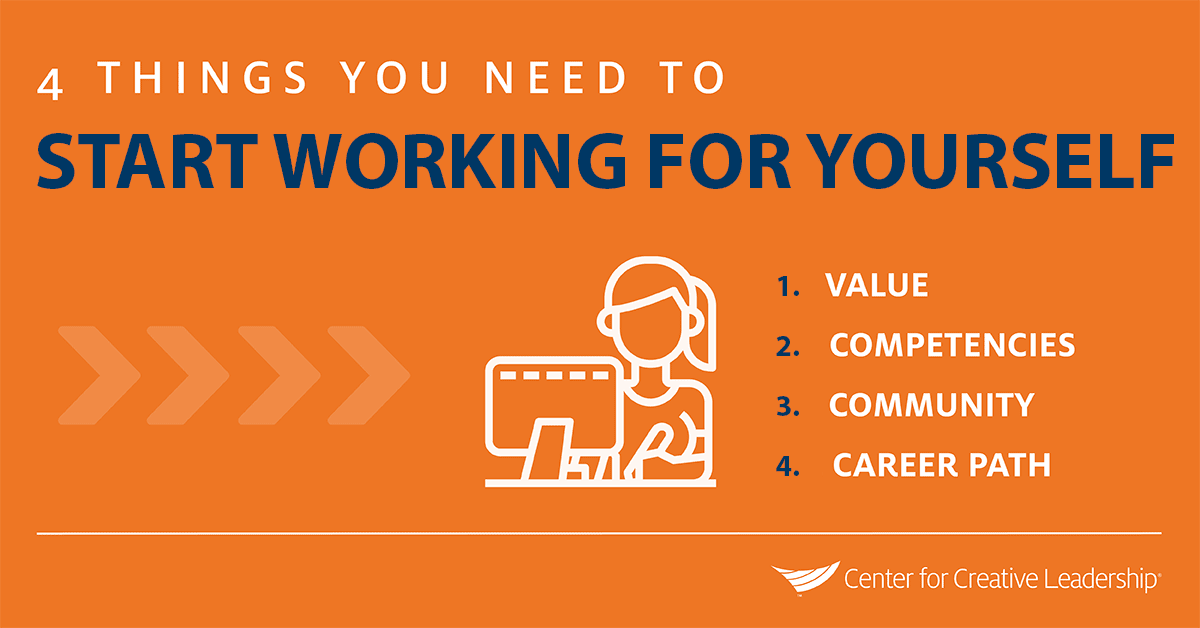Considering Freelancing? What to Know Before Working for Yourself
For many working in the traditional corporate world, there’s a considerable allure in the idea of working for yourself.
You may dream of someday becoming a self-employed consultant, freelancer, or independent contractor. Maybe it’s the thought of greater autonomy, the chance to build something of your own, or setting your own hours and choosing what kind of work you’ll do.
Or maybe, you weren’t dreaming of working for yourself — but suddenly, perhaps unexpectedly, you find yourself in that position.
Before 2020, one of the fastest-growing employment sectors in the U.S. was the gig economy — and then came the global coronavirus pandemic and its economic aftermath. Now, a widespread shift towards working from home, combined with layoffs, leaner organizations, and shifting consumer behaviors have all accelerated the trend, contributing to an explosion in freelancers and independent contractors in recent months.
So whether you’re just starting to consider making the leap into working for yourself, or circumstances or necessity have already pushed you there, what should you be thinking about? What is most helpful to have when you start working for yourself?
What to Think About If You’re Considering Freelance Work
4 Things You Need to Start Working for Yourself
1. Understand your value.
Most importantly, know what value you can provide to others. In the gig economy, what can you do that other people will pay for? Ask yourself:
- What skills do I have? What can I do?
- What kinds of projects or tasks have I been especially successful at?
- What have people been telling me for years that I have a knack for?
Whether you call yourself a freelancer, a consultant, a contractor, a gig worker, or something else, you’ll need to present yourself in a compelling fashion to potential clients. Depending on your field, you might be one of thousands out there vying for many of the same coveted projects or companies. You need to find a way to make yourself stand out. You have to be able to offer a distinct and compelling value proposition. A clear understanding of your unique value is important for establishing a strong leadership brand.
2. Understand your competencies.
When it comes down to it, it’s the things they didn’t teach you in school that often make the difference in achieving sustainable success as a freelancer.
In most cases, it’s not just professional or technical skills that are important. Part of the package of skills that you need when working for yourself is “softer” skills too. Our research has identified over 40 leadership competencies that are helpful in a wide array of roles — these are the same competencies that our widely-recognized leadership assessments evaluate — and being strong in these 7 skills in particular will be helpful if you’re working for yourself:
- Flexibility: Though having a plan is valuable, expecting that plan won’t change is unrealistic. Being flexible enough to adapt to your environment is critical. The needs of your customers, and sometimes events beyond your control, will eventually lead you in new directions. The unpredictability of the past few months have reminded us all of that.
- Learning agility: Learning agility is the ability to absorb new knowledge and develop new skills quickly, based on your experiences. Successful freelancers never stop learning and gleaning lessons from their experiences. They then take the lessons they’ve learned and even the hardships they’ve experienced and adapt them to succeed in new situations. Put another way, they’re talented at knowing what to do when they don’t know what to do.
- Relationship management: Many are drawn to freelancing because being your own boss sounds appealing. But being on your own doesn’t mean you do it all alone. Being able to work effectively with different kinds of people is one of the essential ingredients for self-employment success. At times, working for yourself can feel like a lonely pursuit, so try proactively engaging with others.
- Resiliency: Just about anyone will tell you that freelancing requires grit, discipline, stamina, and composure. Successful freelancers are resilient enough to push through the uncertainty, stress, and anxiety that come during challenging times. Resilient freelancers tackle failure head-on. They don’t brush it aside or seek to place blame. They look at it as a necessary (albeit painful) part of the process of being successful.
- Risk-taking: Working for yourself is essentially one long exercise in risk-taking. The move itself to becoming a freelancer — especially if you’re coming from a more traditional work background — can feel risky. No longer are steady paychecks, designated roles, and corporate hierarchy a part of your day-to-day. The ability to embrace risk (in a smart, calculated way) is helpful.
- Tolerating ambiguity: The life of a freelancer is also inherently ambiguous. There is no clear path. There will be many times when you don’t know what’s around the next corner until you reach it, so the ability to tolerate ambiguity is critical. Successfully working for yourself means not wasting precious energy fighting the uncertainty, or wishing it away, but instead, trusting your intuition.
- Self-awareness: To be successful working for yourself, you have to be able to sell yourself. Doing so requires confidence and authenticity. And a big part of being authentic is knowing yourself, so find ways to increase your self-awareness.
3. Understand your community.
Tell people you’re working for yourself, and you’ll likely hear about the importance of networking skills. Networking is one of the most common recommendations for a freelancer’s perpetual challenge of winning new business.
But when you hear “networking,” does that conjure up an unappealing image of someone glad-handing strangers, exchanging business cards, or making cold calls? Many people, especially women, hold some negative myths about networking.
If that’s you, a term that might be more helpful than networking is community. When you shift your focus from the idea of “building a network” to “fostering a community,” you might find that new possibilities emerge.
Most successful freelancers cultivate a web of personal and professional relationships that can provide a steady source of new projects, opportunities for professional growth, mentorship, support, inspiration, and informal advice. In a large organization, you may get this type of community from fellow employees. But when working for yourself, it’s up to you to build and maintain a community of clients, peers, referral sources, and potential partners.
Many of these relationships are built around a 2-way exchange of value — so, freely give help and advice as often as you seek it. A handful of informal, trusted advisors that you meet with periodically can be very helpful. These people can offer you candid feedback and help you work through ideas or challenges you’re facing. And you can serve in a similar role for others. Take a network perspective as you think about building your community.
4. Understand your career path.
A final question to consider in working for yourself is what this means for your career path. There is no Human Resources department to guide you when you’re a freelancer — you are your own HR department.
So, you’ll have to define your ambitions and be your own advocate. You have to consider what professional development you might need and what career advancement might look like for you.
Having a clear vision and setting goals that align with your values can help, as can getting regular advice and support from other people.
Working for yourself is still building a career, just not in the traditional sense.
Ready to Take the Next Step?
Whether you’re already working for yourself or just considering freelancing, consider our research-based leadership topics, which include Authentic Leadership, Emotional Intelligence, Self-Awareness, and more.










